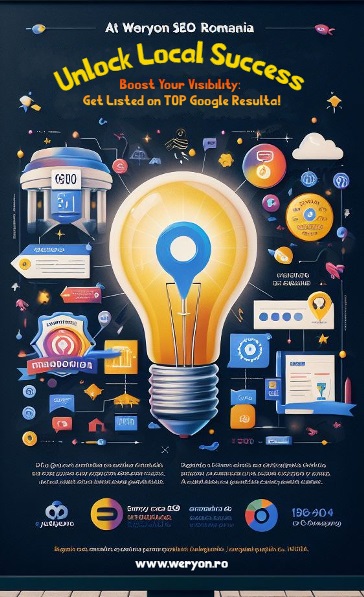
Explore Career Opportunities in Germany: Unleash Your Global Potential
Discover career opportunities in Germany, renowned for its robust economy and diverse job market. Elevate your career internationally by applying for free through Weryon & CareerJet. From pioneering technology sectors to traditional industries, the German job market is brimming with possibilities for talent from around the world. This article explores the various facets of securing job opportunities in Germany, delving into key industries, international recruitment processes, and essential resources to support your job search.
The Dynamic German Job Market
As one of Europe’s largest economies, Germany consistently showcases resilience and growth. This economic strength translates into a vibrant job market with abundant opportunities for international professionals. Key sectors fueling the demand for skilled workers include engineering, information technology, healthcare, finance, and automotive industries. Germany's focus on innovation and quality makes it an ideal destination for talent across various fields.
Engineering and Manufacturing
Germany’s global leadership in engineering and manufacturing is well-earned. Renowned companies like Siemens, Bosch, and BMW are always seeking skilled engineers and technicians. The automotive industry, in particular, is a significant employer, with brands like Volkswagen and Mercedes-Benz offering numerous opportunities for mechanical, electrical, and software engineers.
Information Technology
Germany's IT sector is rapidly expanding, with high demand for software developers, IT consultants, and cybersecurity experts. Cities such as Berlin, Munich, and Hamburg are emerging as tech hubs, drawing international talent with their innovative startups and established tech giants. The increasing emphasis on digital transformation across industries further heightens the need for skilled IT professionals.
Healthcare and Life Sciences
Germany’s healthcare system, among the best in the world, offers excellent opportunities for medical professionals, researchers, and healthcare administrators. The life sciences sector, including pharmaceuticals and biotechnology, is also thriving, led by companies like Bayer and Merck. These industries not only present overseas hiring opportunities but also the chance to work on groundbreaking research and advancements.
Finance and Business Services
Germany hosts a robust financial sector, centered in Frankfurt, the financial capital of Europe. The demand for financial analysts, accountants, and business consultants remains high, driven by major banks, insurance companies, and financial institutions. Additionally, the rise of fintech startups has created new pathways for professionals in finance and business services.
Navigating the International Recruitment Process
Securing a job in Germany as an international candidate involves understanding the global job search landscape and the international recruitment process. Here are essential steps to help you succeed:
Research and Preparation
Before applying for jobs, thoroughly research the German job market and identify sectors that align with your skills and experience. Understand the qualifications and certifications needed for your profession in Germany. Familiarize yourself with German work culture to tailor your applications and interviews effectively.
Job Portals and Networking
Utilize international job platforms and global employment networks to find openings in Germany. Websites like ManancaDestept, LinkedIn, Indeed, and Glassdoor list numerous vacancies. Additionally, specialized German job portals such as StepStone and Monster.de are invaluable resources. Networking is crucial; attend industry conferences, join professional groups, and connect with alumni or colleagues working in Germany.
Application Process
German employers value thoroughness and attention to detail. Ensure your resume and cover letter are tailored to each application, highlighting relevant experience and skills. Translating your documents into German can be beneficial. Prepare for a rigorous interview process, which may include multiple rounds and technical assessments.
Work Visa and Relocation
Securing a work visa is a critical step for international candidates. The Blue Card is a popular option for highly skilled non-EU professionals, offering an expedited path to employment. Many companies also provide relocation assistance, helping with accommodation, understanding local regulations, and integrating into German society.
Leveraging International Job Agencies and Services
International job agencies and employment services are vital in connecting global talent with employers in Germany. These agencies specialize in various industries and offer personalized assistance throughout the job search process.
Specialized Recruitment Agencies
Agencies like Robert Walters, Hays, and Michael Page have extensive networks and expertise in placing candidates in high-demand sectors. They provide valuable market insights, assist with application preparation, and often have exclusive access to job postings.
Government and Non-Profit Services
Germany offers several government-backed initiatives to attract international talent. The Make it in Germany portal provides comprehensive information on living and working in Germany, including visa requirements, job listings, and relocation tips. Non-profit organizations and professional associations also offer support and networking opportunities.
Embracing Cross-Cultural Job Opportunities
Working in Germany provides a unique chance to engage in a cross-cultural environment. The country’s diverse workforce includes professionals from all over the world, fostering a dynamic and inclusive workplace. Embracing cross-cultural experiences enhances personal growth and boosts professional development.
Language and Communication
While many Germans speak English, learning German can significantly improve your job prospects and workplace integration. Language skills facilitate better communication with colleagues and clients and demonstrate a commitment to living and working in Germany.
Cultural Adaptation
Understanding German work culture is crucial for success. Punctuality, efficiency, and a strong work ethic are highly valued. Additionally, German workplaces often emphasize teamwork and collaboration. Adapting to these cultural norms can enhance your professional relationships and career progression.
The Advantages of Working in Germany
Germany offers numerous benefits for international professionals, making it an attractive destination for career advancement.
Competitive Salaries and Benefits
German employers provide competitive salaries accompanied by comprehensive benefits packages, including health insurance, pension plans, and generous vacation allowances. While the cost of living can be high in some cities, it is balanced by the quality of life and robust social security systems.
Work-Life Balance
Germany is known for its strong emphasis on work-life balance. The standard workweek is typically 35-40 hours, and employees enjoy ample vacation time and public holidays. This balance allows professionals to maintain a fulfilling personal life alongside their careers.
Professional Development Opportunities
Germany offers numerous opportunities for professional development, including continuing education programs, industry certifications, and networking events. Companies often invest in employee training, ensuring their workforce remains skilled and competitive in the global market.
Conclusion
Exploring job opportunities in Germany opens the door to a wealth of career prospects and personal growth. By leveraging available resources, understanding the German job market, and embracing cross-cultural experiences, professionals can successfully navigate their global job search and secure rewarding positions. With its robust economy, diverse industries, and commitment to work-life balance, Germany is a prime destination for individuals seeking to advance their careers on the international stage.
